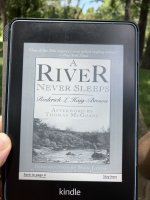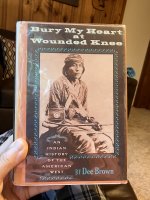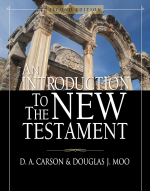Just finished up an older Stephen King book called Revival. Pretty good.I’m reading the schit out of the gray man series. I am the gray man
Book(s) you are currently reading.
- Thread starter LionJim
- Start date
You are using an out of date browser. It may not display this or other websites correctly.
You should upgrade or use an alternative browser.
You should upgrade or use an alternative browser.
Just finished “ The Life We Chose “ by Billy D‘Elia, a mobster in the Bufalino family. Good but not riveting. After a while it becomes pretty boring reading about these guys.
just started “ The Ministry For the Future” by Kim Stanley Robinson. Riveting, gripping, deep and thought provoking. Really excellent.
just started “ The Ministry For the Future” by Kim Stanley Robinson. Riveting, gripping, deep and thought provoking. Really excellent.
About the plotline, it’s Holden that’s the difficulty. I had been hoping to nail Holden down, once and for all, no luck. I still don’t get it.Just read it as well with similar impressions. No denying the guy could paint pictures with words but I struggled to get into the plotline. I didn't resort to the dictionary but just tried to figure out what things meant by context (several examples in the paragraph you referenced). Half the time I thought, well THAT'S not really a word - he made that up. Nevertheless, an American classic.
There were a few things I noticed that I had missed in previous readings. That didn’t help my understanding at all, really muddied the waters. Blood Meridian is hard on the heart.
I had known that Glanton was based on a real man, but only recently learned that Holden was too. The real Holden would give scientific and legal lectures, too, imagine that.

Judge Holden - Wikipedia

I finished this book this past Saturday. It's part of the publisher's (Westholme Publishing) Small Battles series, which focuses on less-well-known battles in the American Revolution.
Jack Buchanan is the author, and he's an absolute gem. He's one of the leading experts on the Southern Campaign (battles in the south during the American Revolution between 1779 - 1781). In addition, he has a great sense of humor, which he slips into the book periodically, without detracting from the historical information.
He makes a compelling argument that the Battle of Musgove's Mill was one of the pivotal battles in the South. It was fought a few days after the 2nd army sent to the South were absolutely routed at Camden, SC. (The 1st army had been forced to surrender at Charleston, after the civilian leadership had beseeched (and convinced) Gen. Benjamin Lincoln to not abandon the city as the British tightened their siege of the city.)
For the patriots at Musgrove's Mill, a collection of Georgia, South Carolina, and North Carolina militia, under the leadership of colonels Elijah Clarke, James Williams, and Isaac Shelby, respectively, joined together. No Continental army regulars were involved. They took on a group of loyalist militia, and soundly defeated them. The casualty rate for the loyalists was comparable to that suffered by the British at Bunker Hill, yet hardly anyone knows of Musgrove's Mill, while most Americans are at least aware of Bunker Hill.
Buchanan's contention, which is very convincing, was that the rout of the loyalists at Musgrove's Mill lead to British Major Patrick Ferguson chasing the patriots (and the 70 prisoners they captured at Musgrove's Mill) into Western North Carolina. His actions there, most specifically his direct challenge to seek out and eliminate the fighters and the families of the North Carolina militia men, are what caused the militia to greatly increase their numbers, come down out of the mountains, chase Ferguson's forces (provincials, which were loyalists that served in the British army (mostly from NY and NJ; smaller numbers from PA), and then deliver the first large victory of the Southern Campaign for the patriots, at King's Mountain (where Major Ferguson of the British was killed, as well as Col. Williams of the South Carolina militia).
As the book focuses on one small battle, the book is pretty short. Between the information provided, as well as the humor added by the author, I highly recommend this book for those that would like to learn about an under appreciated aspect of the American Revolution.
Finished Bill Bryson’s A Short History of Nearly Everything and Vaclav Smil’s How the World Really Works.
Bryson is a journalist - easy to read. A lot of the content is stuff we already know (if technical), but still an easy read. Smil is a tougher read, but his take on steel, cement, and plastics and their importance in this world is interesting.
Bryson is a journalist - easy to read. A lot of the content is stuff we already know (if technical), but still an easy read. Smil is a tougher read, but his take on steel, cement, and plastics and their importance in this world is interesting.
This might be of interest for those Cormac McCarthy fans. "Cormac McCarthy's House: Reading McCarthy Without Walls" ebook version is on sale today for $2.99. Looks like it is available on Kindle, Apple, Nook, Google, & Kobo.
It appears to be literary criticism of his work as well as a biography of McCarthy.
It appears to be literary criticism of his work as well as a biography of McCarthy.
One of the big regrets of my life is that I didn’t read Suttree until after I left Knoxville.This might be of interest for those Cormac McCarthy fans. "Cormac McCarthy's House: Reading McCarthy Without Walls" ebook version is on sale today for $2.99. Looks like it is available on Kindle, Apple, Nook, Google, & Kobo.
It appears to be literary criticism of his work as well as a biography of McCarthy.

Suttree - Wikipedia
I've only read Blood Meridian, All the Pretty Horses, No Country for Old Men, The Road. The Passenger & Stella Maris are on my unsurmountable purchased, but haven't read list.One of the big regrets of my life is that I didn’t read Suttree until after I left Knoxville.

Suttree - Wikipedia
en.m.wikipedia.org
The Passenger and Stella Maris have their moments but don’t quite work for me. I was mildly disappointed, although McCarthy does tend to improve with repeated readings.I've only read Blood Meridian, All the Pretty Horses, No Country for Old Men, The Road. The Passenger & Stella Maris are on my unsurmountable purchased, but haven't read list.
Thanks for the heads up. I try to give a book 20% to hook me or else I move on. Life’s too short to read books I don’t like.The Passenger and Stella Maris have their moments but don’t quite work for me. I was mildly disappointed, although McCarthy does tend to improve with repeated readings.
Of the ones that I have read, ’The Road’ is my favorite. I have a soft spot for well crafted dystopian fiction.
Had this on reserve at the Library and picked it up the other day. I'm a big Stephen King fan and IMO some of his best stuff is his "Americana" with horror or a little supernatural thrown into the mix...Mr. Mercedes, Stand by Me, Misery, Delores Claiborne, 1922.The greatest book.
https://en.wikipedia.org/wiki/A_Face_in_the_Crowd_(novella)
Haven't read that since middle school.The greatest book.
Thanks for the tip.When reading McCarthy, always have your phone handy for looking up words in the thesaurus. Take the time, you’ll thank me.
As an old timer, I had been reluctant to switch from paper to e-books. Since I’ve discovered the ”lookup“ function on the newer technology I thoroughly enjoy using the Kindle for older, translated, or technical topics.
If I ever get around to McCarthy, I’ll do the same.
Nice tech hack there. But, no, I’ll be paper til I die.Thanks for the tip.
As an old timer, I had been reluctant to switch from paper to e-books. Since I’ve discovered the ”lookup“ function on the newer technology I thoroughly enjoy using the Kindle for older, translated, or technical topics.
If I ever get around to McCarthy, I’ll do the same.
Same here, LionJim. I'll do electronic for articles but for books, paper it is.Nice tech hack there. But, no, I’ll be paper til I die.
I’m heading to Dewey Beach so in the “going back to a favorite place” vein, here’s some Wordsworth. It’s not my favorite, but in my estimation it’s the greatest poem I’ve read. (I’ve read plenty.)
Plato's "The Republic" never read it before and "The Women of Rothschild, The Untold Story of the World's Most Famous Dynasty" by Natalie Livingstone really interesting read.
Finished Holly not too long ago. Went out and bought a couple of older ones that I hadn't read. Currently reading Cell.Just finished up an older Stephen King book called Revival. Pretty good.
The think the Mr. Mercedes trilogy is amazing.Had this on reserve at the Library and picked it up the other day. I'm a big Stephen King fan and IMO some of his best stuff is his "Americana" with horror or a little supernatural thrown into the mix...Mr. Mercedes, Stand by Me, Misery, Delores Claiborne, 1922.
https://en.wikipedia.org/wiki/A_Face_in_the_Crowd_(novella)
Gonna read the mr mercedes trip next thx for the pro tipFinished Holly not too long ago. Went out and bought a couple of older ones that I hadn't read. Currently reading Cell.
The think the Mr. Mercedes trilogy is amazing.
The trilogy is very good. The Streaming series on Peacock is also very good.Gonna read the mr mercedes trip next thx for the pro tip
I’m heading to Dewey Beach so in the “going back to a favorite place” vein, here’s some Wordsworth. It’s not my favorite, but in my estimation it’s the greatest poem I’ve read. (I’ve read plenty.)
The location was always on my bucket list for a chance at an Atlantic Salmon from The River Wye.
I can picture it.The location was always on my bucket list for a chance at an Atlantic Salmon from The River Wye.
Wye not?The location was always on my bucket list for a chance at an Atlantic Salmon from The River Wye.
Have you read Bryson’s Notes from a Small Island?Finished Bill Bryson’s A Short History of Nearly Everything and Vaclav Smil’s How the World Really Works.
Bryson is a journalist - easy to read. A lot of the content is stuff we already know (if technical), but still an easy read. Smil is a tougher read, but his take on steel, cement, and plastics and their importance in this world is interesting.
Pure genius!
Looking for the definitive book on the History of the Catholic Church. Any recommendations?
I’m reading A Trick of the Light by Louise Penny. It’s an Inspector Gamache novel. After spending last week on my bucket list vacation in Quebec and taking the first class train from Montreal to Quebec City (I kept waiting for a moose to jump out of the snowy woods) I felt inspired to read a good murder mystery which takes place in Three Pines, Quebec, and Inspector Gamache is a French Canadian Homicide Detective from Montreal who is the recurring character in all the Penny novels. BTW if you need any restaurant recommendations in Montreal or Quebec City, hit me up.





